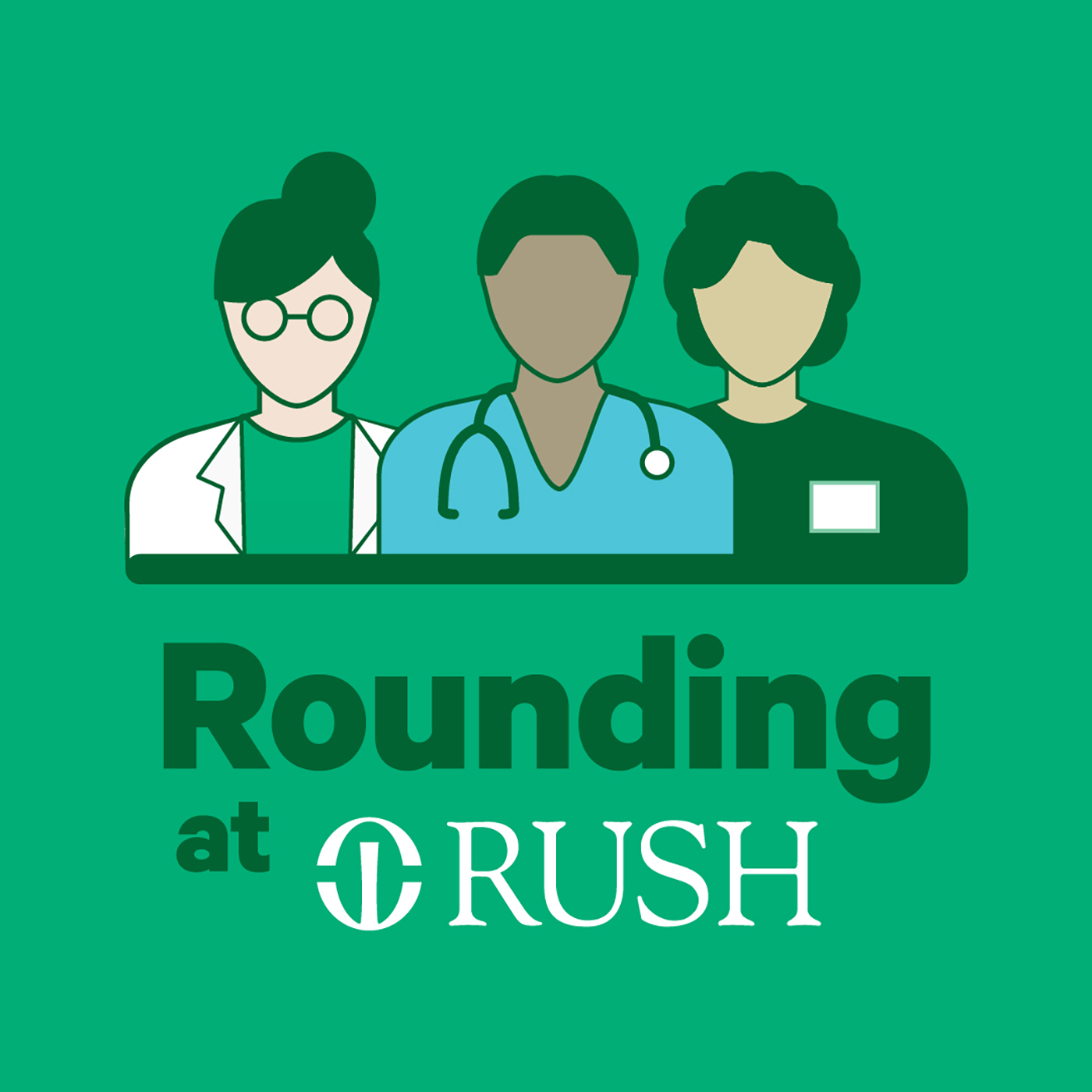
Rounding at Rush spotlights the work of physicians across the Rush University System for Health, comprised of two community hospitals and Rush University Medical Center, which is ranked by U.S. News & World Report as one of the nation’s best hospitals. As a leading health system, Rush delivers outstanding patient care, offers the latest treatments, educates the next generation of health care providers, and pursues groundbreaking research. Accreditation Statement In support of improving patient care, Rush University Medical Center is jointly accredited by the Accreditation Council for Continuing Medical Education (ACCME), the Accreditation Council for Pharmacy Education (ACPE), and the American Nurses Credentialing Center (ANCC), to provide continuing education for the health care team. This activity is being presented without bias and with/without commercial support. Designation Statement Rush University Medical Center designates this internet enduring material activity for a maximum of One (1) AMA PRA Category 1 Credit(s)™. Physicians should claim only credit commensurate with the extent of their participation in the activity. Disclosures The course director(s), planner(s), faculty and reviewer(s) of this activity have no relevant financial relationships to disclose.
Episodes
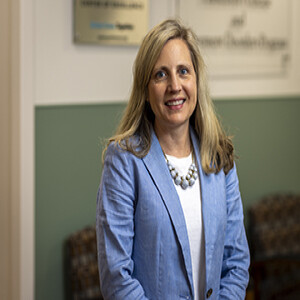
Monday Jul 31, 2023
Monday Jul 31, 2023
The RUSH Parkinson's Disease and Movement Disorders program treats over 7,000 patients with movement disorders, the majority of whom have Parkinson's disease (PD). RUSH is currently conducting about 150 research projects related to movement disorders; half of those focus on PD. Research on PD at RUSH encompasses a wide breadth of inquiry, from clinical phenotypes to pharmacologic interventions and much more.
Deborah Hall, MD, is a neurologist and movement disorder specialist and the Division Chief of the Section of Movement Disorders at RUSH University Medical Center. She also co-leads the novel RUSH PD GI Clinic, a novel multidisciplinary clinic focused on the gastrointestinal health of patients with PD and other movement disorders.
“Gene-based therapies are a particularly exciting area of research. Over the last five years, RUSH’s goal has been to personalize treatment for PD patients. This particular strategy coincides very nicely with the worldwide gene discovery effort to look at the genetic causes of Parkinson's disease.”
CME Link: https://cmetracker.net/RUSH/Publisher?page=pubOpenSub#/event/489645/

Friday Jun 16, 2023
Comprehensive Atrial Fibrillation Care at RUSH with Erica Engelstein, MD
Friday Jun 16, 2023
Friday Jun 16, 2023
RUSH electrophysiologists treat patients with atrial fibrillation through a number of pharmacologic, non-surgical and surgical approaches, while also helping them modify risk factors to slow down progression of this chronic disease. Our providers treat newly diagnosed, paroxysmal, persistent and permanent atrial fibrillation. RUSH clinicians coordinate patients’ care before, during and after treatment, tailoring a multidisciplinary treatment plan that specifically meets their needs.
Dr. Erica Engelstein is an electrophysiologist in the RUSH University System for Health and an expert in treating atrial fibrillation. Her clinical interests include evaluation and treatment of patients with suspected or documented arrhythmias, including catheter ablation of atrial fibrillation and ventricular tachycardia.
“Some patients are best managed with rate control and anticoagulation so that we don't expose those patients unnecessarily to an invasive procedure. However, if the chances of restoring and maintaining a normal heart rhythm are good--and a lot of patients fit that profile--then they may be better managed with a more aggressive approach including catheter ablation.”
CME Link: https://cmetracker.net/RUSH/Publisher?page=pubOpenSub#/event/488912/
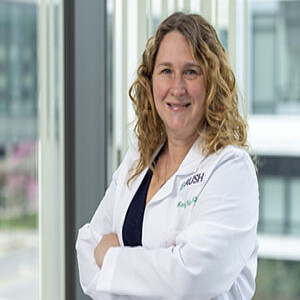
Tuesday May 23, 2023
Genetic Profiling of Non-small Cell Lung Cancer at RUSH with Mary Jo Fidler, MD
Tuesday May 23, 2023
Tuesday May 23, 2023
Through its participation in several stage III and IV lung cancer clinical trials, RUSH is a leader in identifying future treatments for patients with early and late-stage non-small cell lung cancer. By studying genetic mutations and analyzing genetic sequencing, RUSH is also developing new hypotheses about lung cancer progression through its partnership with Tempus.
Mary Jo Fidler, MD, is a thoracic oncologist and professor of Internal Medicine at RUSH University Medical Center. She is the Medical Oncology Section Chief in the RUSH Cancer Center and is the national principal investigator for the ADAURA trial, which is studying the effects of postoperative Osimertinib in resected EGFR+ lung cancer patients.
“We have at our fingertips an enormous amount of data [on non-small cell lung cancer]. When we generate hypotheses for tumor resistance and cancer cachexia, it is really helpful to have this large data set as we try to make sense out of the multitude of gene rearrangements, amplifications and RNA sequencing changes.”
CME Link: https://cmetracker.net/RUSH/Publisher?page=pubOpenSub#/event/489638/
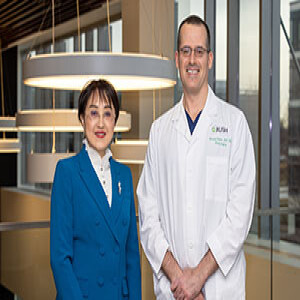
Friday Apr 14, 2023
Friday Apr 14, 2023
Clinicians in the RUSH Spine Center take an integrated, multidisciplinary approach with the assessment and management of spine problems. They provide patients with innovative, evidence-based and individualized non-surgical and surgical treatment plans aimed at rapidly restoring function and quality of life.
Hong Wu, MD, is a physiatrist and the Director of the RUSH Spine Center. Ricardo Fontes, MD, PhD, is a neurosurgeon and the director of the RUSH Neurosurgery Residency Program.
“The success of the multidisciplinary approach is just the recognition that nobody has a set recipe for every patient,” says Dr. Fontes. “This model is very versatile and can offer a gamut of options to our patients. Surgery is not the solution for most patients and some may do very well with non-operative treatments.”
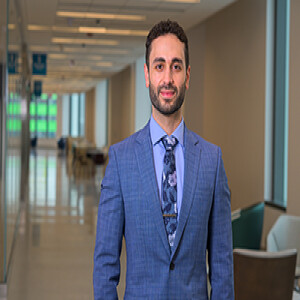
Tuesday Feb 21, 2023
Tuesday Feb 21, 2023
Whether cancer patients are newly diagnosed, currently receiving treatment or having completed treatment, the role of a physiatrist is to optimize their function and quality of life. While physiatry has grown in its incorporation in cancer care nationwide, RUSH is one of a small number of hospitals offering dedicated physical medicine and rehabilitation care for its cancer patients.
Obada Obaisi, MD, is an assistant professor in the RUSH Department of Physical Medicine and Rehabilitation and is the director of cancer rehabilitation at RUSH University Medical Center.
“My role [as a physiatrist] is to maintain or restore function, minimize symptom burden, maximize independence and ultimately improve quality of life for cancer survivors. Cancer rehabilitation involves a large, multidisciplinary team that includes myself, physical therapists, occupational therapists, speech language pathologists, dieticians and psychologists. I often tell patients I'm their quarterback for their function, so I can help identify which of these services the patient may need and coordinate with them based on their impairments.”
CME Link: https://cmetracker.net/RUSH/Publisher?page=pubOpenSub#/event/488832/
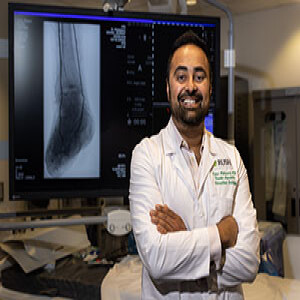
Tuesday Jan 24, 2023
Critical Limb Ischemia Management and Limb Salvage with Kumar Madassery, MD
Tuesday Jan 24, 2023
Tuesday Jan 24, 2023
Critical limb ischemia is the end stage of peripheral arterial disease (PAD). With early detection and intervention of PAD, RUSH providers can prevent critical limb ischemia and major amputation for patients. RUSH is one of the only academic medical centers in Chicago and the Midwest to perform complex revascularization to restore blood flow and salvage limbs.
Kumar Madassery, MD, is the director of the Peripheral Vascular Interventions and Critical Limb Ischemia Program in the RUSH University System for Health. He is also an associate professor of Vascular Interventional Radiology and is the director of the Advanced Vascular Interventional Radiology Fellowship at RUSH.
“One providers specialize in treating patients with peripheral arterial disease that has progressed where they need some type of surgical or endovascular intervention. Over the last 10 to 15 years, we’ve seen an exponential growth of revascularization strategies and techniques that have helped to save patients from amputation.”
CME Link: https://cmetracker.net/RUSH/Publisher?page=pubOpenSub#/event/488817/

Friday Nov 04, 2022
Friday Nov 04, 2022
Clinicians in the RUSH Department of Urology are some of the country’s leading laparoscopic and robotic surgeons who offer patients the most advanced diagnostic capabilities for diagnosing urologic cancers, including prostate cancer. Once a timely, accurate diagnosis has been made, RUSH urologists create tailored treatment plans that leverage leading-edge treatments to improve patient outcomes and their quality of life.
Edward Cherullo, MD, is a urologist and the chief of the Department of Urology at RUSH University Medical Center. Under his leadership, Dr. Cherullo has expanded the Department’s efforts to provide comprehensive subspeciality care that incorporates the latest minimally invasive technologies. As a result, the Department of Urology is a regional and national leader of urologic care and is currently ranked No. 14 in the country by U.S. News & World Report.
“Prostate cancer is a very infiltrative cancer, which can be invisible on CT scan and even standard MRI. The advanced diagnostic technologies we use allow us to see the prostate gland in detail, including some of its metabolic activity and the cancer with 85 to 90% accuracy, which is good. That accuracy helps us make more accurate decisions regarding treatment.”
CME link: https://cmetracker.net/RUSH/Publisher?page=pubOpenSub#/event/487011/
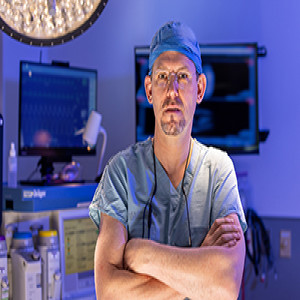
Wednesday Sep 28, 2022
The DRAGON Trials: Next Generation Liver Cancer Care with Erik Schadde, MD
Wednesday Sep 28, 2022
Wednesday Sep 28, 2022
The DRAGON 1 and 2 trials are large, multicenter, international trials that are evaluating the use of combined portal and hepatic vein, or double vein, embolization, to treat advanced liver cancer and metastases. Double vein embolization has the potential to become a new standard of care that could provide patients with life-extending and even life-saving treatment.
Erik Schadde, MD, FACS, FEBS (HPB), a transplant surgeon at RUSH University Medical Center, spearheaded the creation of the trial and has been at the center of some crucial discoveries in the use of double vein embolization.
“Sometimes liver tumors are so big or there are so many that you have very little liver left in the body if you want to remove them. In the past, those tumors haven’t been resectable. But we’ve actually found that you can grow the liver, so even very small liver remnants can now serve as a future liver remnant. Double embolization is an exciting new method that’s allowing us to do that.”
CME Link: https://cmetracker.net/RUSH/Publisher?page=pubOpenSub#/event/486727
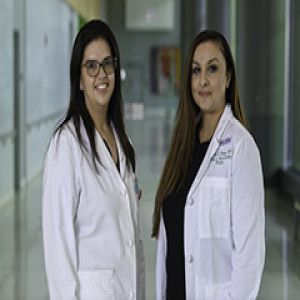
Monday Aug 29, 2022
Monday Aug 29, 2022
RUSH University System for Health has a high-volume program for breast cancer treatment and reconstruction, incorporating a multidisciplinary approach that involves our plastic surgery, surgical oncology and medical oncology teams. This approach ensures our patients are treated with a coordinated, individualized care plan. RUSH also performs a wide range of leading-edge implant and flap breast reconstruction procedures after mastectomy or lumpectomy.
Rosalinda Alvarado, MD, is a breast surgeon experienced in breast conserving surgery, mastectomy including nipple-sparing mastectomy, oncoplastic surgery, sentinel node biopsy and breast cancer prevention and risk reduction.
Deana Shenaq, MD, specializes in both implant-based and autologous reconstruction after breast cancer and in microvascular techniques for lymphedema treatment, including lymph node transfer and lymphovenous bypass procedures.
“It’s very important that Dr. Alvarado does what she needs to do to get the cancer out safely and have a negative margin,” says Dr. Shenaq. “My main goal is not only to prevent recurrence, but also to do the reconstruction in the most aesthetically pleasing way possible.”
CME link: https://cmetracker.net/RUSH/Publisher?page=pubOpenSub#/event/486749
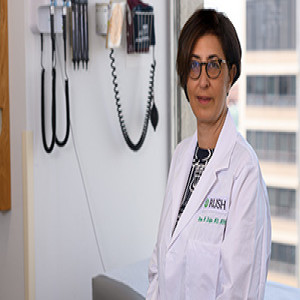
Thursday Aug 04, 2022
Comprehensive Stroke Care at RUSH with Rima Dafer, MD
Thursday Aug 04, 2022
Thursday Aug 04, 2022
The RUSH University System for Health is nationally recognized for its delivery of timely, effective stroke care and expertise in treating some of the most complex stroke cases. Within the past year, three multidisciplinary subspecialty clinics were opened at RUSH to provide an even greater level of specialty stroke care for patients.
Rima Dafer, MD, is a vascular neurologist and the director of the Comprehensive Outpatient Cerebrovascular Diseases Clinic at RUSH University Medical Center. She has been a principal investigator on numerous clinical trials in acute stroke intervention and secondary stroke prevention. Her clinical interests center around stroke occurrence in young adults and the association of stroke and atrial fibrillation.
“Our stroke-cardiology and stroke-neurosurgery clinics provide patients with a personalized individualized care plan tailored to their unique needs depending on their condition. And our stroke prevention clinic plays such an important role in helping patients understand very simple risk factors that aid in primary stroke prevention.”
CME link: https://cmetracker.net/RUSH/Publisher?page=pubOpenSub#/event/486244
